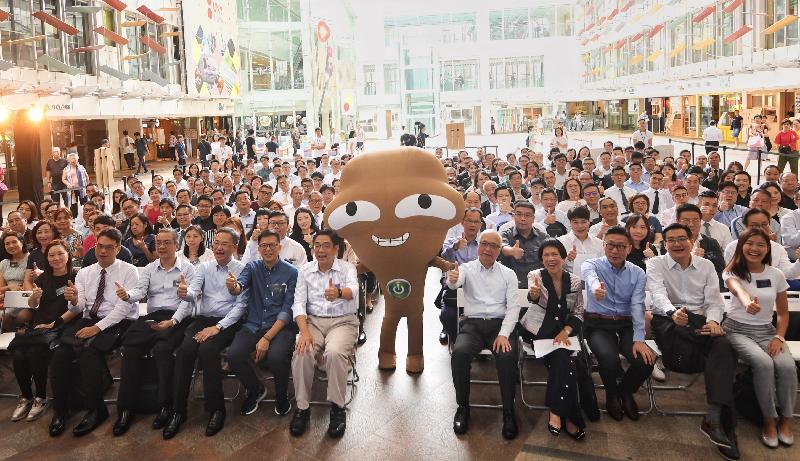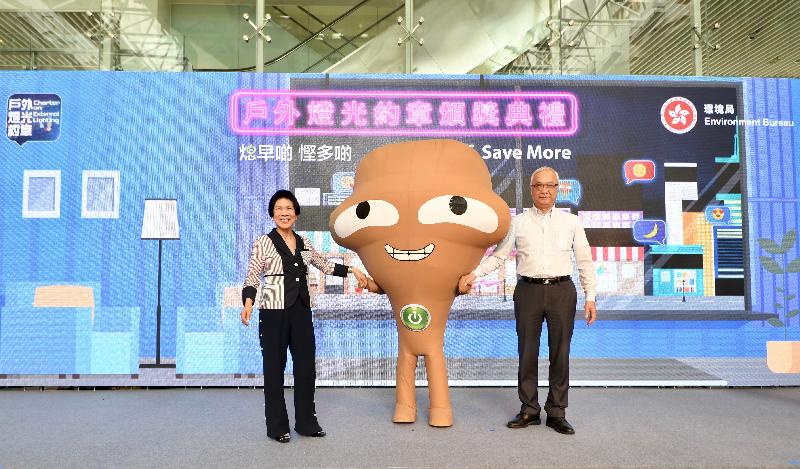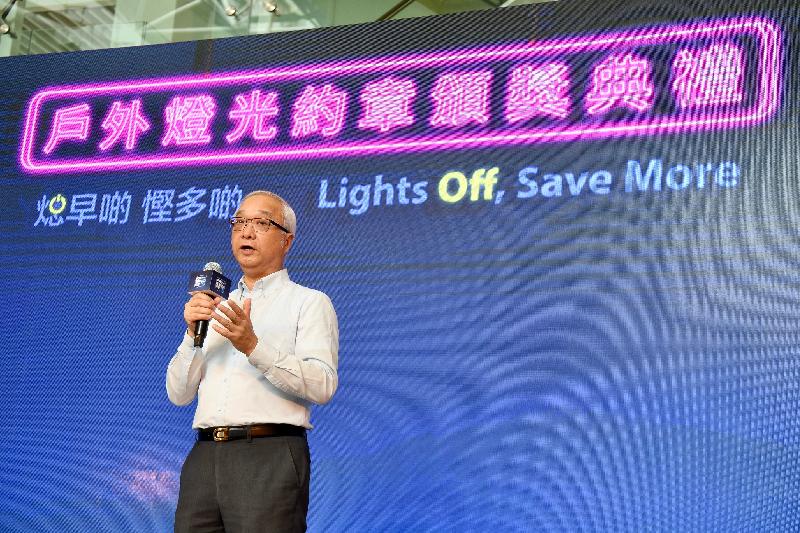Third award ceremony for Charter on External Lighting held (with photos)
************************************************************************
The Under Secretary for the Environment, Mr Tse Chin-wan, and the Chairperson of the Working Group on External Lighting, Ms Caroline Mak, officiated at the award ceremony. More than 3 300 participants fulfilling the pledge to switch off external lighting from 11pm to 7am were awarded the Platinum Award, while some 1 200 participants were awarded the Gold Award for switching off external lighting from midnight to 7am. In addition, over 270 participants newly signed up to the Charter this year were granted certificates.
The Charter participants come from different sectors including building management, property development, hotels and catering, retail, laundries, banking, money exchange shops, pharmacies, pet shops, massage parlours, salons, telecommunications and real estate agencies, as well as schools, public utilities and public/non-governmental organisations. The Charter has effectively connected various sectors in collaboratively minimising light nuisance, which is conducive to maintaining good neighbourhoods.
"I hope the community will continue to support the Charter by switching off the unnecessary external lighting at preset time, so as to save more and provide the community with a better environment conducive to sleep," Mr Tse said.
The ceremony also recognised two Partners of the Charter for taking the initiative to encourage through their networks a number of premises with external lighting installations to sign up to the Charter. Ms Mak thanked them for shouldering corporate social responsibility to further promote the Charter to various sectors of the community.
The Working Group was appointed by the Government in August 2018. Apart from promoting the Charter, the Working Group review the effectiveness of the Charter, and advise the Government on further measures to better manage external lighting. It comprises members from professional bodies, relevant trades, academia, green groups and District Councils.
"I hope that the community can actively participate in the coming public activities and express their views, so that the Working Group can consolidate views from different parties, and advise the Government on the way forward for managing external lighting in a more comprehensive and effective approach," Ms Mak said.
The Environment Bureau launched the Charter in April 2016 to invite owners of and responsible persons for external lighting installations to switch off lighting installations with decorative, promotional or advertising purposes that affect the outdoor environment during preset times (i.e. 11pm or midnight to 7am on the following day). The list of participants is available on the Charter's dedicated website (www.charteronexternallighting.gov.hk).
Ends/Thursday, June 27, 2019
Issued at HKT 16:02
Issued at HKT 16:02
NNNN







